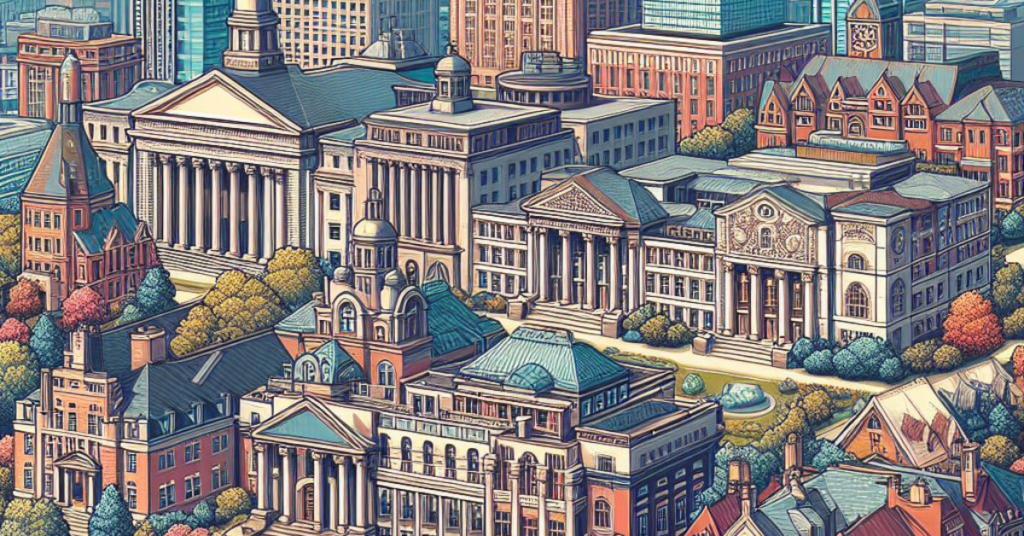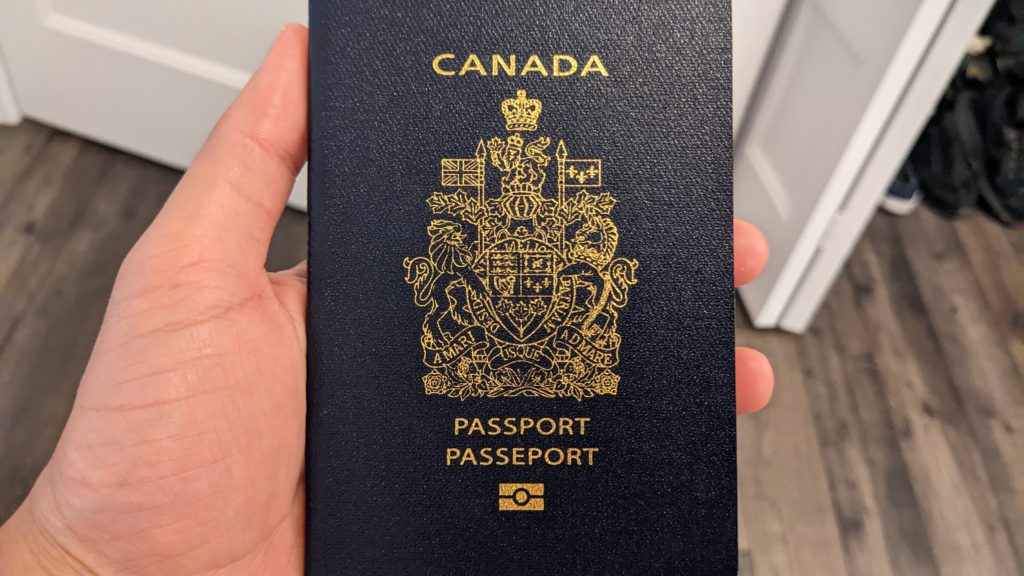Are you thinking about moving to Canada?
Hi everyone, my name is Tom and I’ve been living in Canada for a few years now and I wanted to share my thoughts on the benefits of living here. I moved to Toronto, Canada in 2018 from the United States because I had heard in the news that Canadian cities were consistently being rated as the top places to live in the world and had lots of job vacancies, so I thought why not give it a try and live there.

In this post, I’ll go into detail on what I believe are some of the benefits of living in Canada, and how they might apply to you as well.
Canada’s Publicly Funded Healthcare System
One of the biggest benefits of living in Canada is its publicly funded healthcare system. This means that most healthcare services are covered for residents at no additional cost.
Eligibility for Public Healthcare System
This benefit is available if you are coming to Canada as a permanent resident. Once you arrive, you will need to apply for your provincial health insurance card that will avail you access to the Public Healthcare System and there won’t be any additional charges for your visit to a doctor or if you are headed to a walk-in clinic or any hospital within your province.
Provincial Healthcare System Coverage
Keep in mind that coverage can vary depending on the province or territory you live in. Here’s what usually covered –
- Basic healthcare services including visits to doctors
- Specialists
- Surgeries and
- Medical Procedures
- Limited access to mental health services (in certain provinces)
Personal Experience with Ontario’s Public Health System
Personally, I have used Canada’s ambulatory and emergency services multiple times and have never had to pay a penny. In other countries with private healthcare systems, these visits could have resulted in significant debt.
Provincial Drug Insurance Plan
In some provinces, such as Quebec, there is even a Prescription Drug Insurance plan available for residents who don’t have insurance or employee benefits. This plan helps make prescription drugs more affordable.
No Dental And Vision Coverage
The following is generally not covered under the Provincial Healthcare System –
- Dental care
- Vision
- Mental health services are limited
Do You Need Private Health Insurance?
Yes, it’s recommended to have a private health insurance as dental and vision are not covered under the Public Healthcare System.
Canada’s Dental Benefit Plan
Depending on your household income, parents/guardians of children may be eligible for dental benefit if they don’t have a private health insurance plan.
Healthcare For Temporary Residents?
If you are a temporary residence visa holder then you will not be eligible for the public healthcare system. Instead you will need to secure private health insurance for the whole period of your stay which can be quite costly.
Delays In Healthcare System
You might run into issues looking for a family doctor in Canada. Apparently there are millions of Canadians currently on waitlist and it can take months, and sometimes years to get a family doctor assigned or have surgery scheduled.
Low Crime Rates in Canadian Cities
Did you know that Canadian cities tend to have low crime rates compared to other North American countries like the United States or Mexico?
In fact, Canadian cities often rank highly in terms of standard of living due in part to their lower crime rates, even if they may be outranked in other areas such as median salaries.
Canadian Cities Vs American Cities
Canadian cities generally tend to have –
- Lower homicide rates
- Lower gun violence
- Lower property crime rates
- Safer urban environments
Personal Experience While Living In Toronto
When I lived in downtown Toronto, I felt safe walking around at night and didn’t have any issues. While there have been occasional instances of shootings in the downtown area, they are relatively rare compared to some of the other American or Mexican cities.
Homeless Population in Canada
It’s worth noting that there is a significant homeless population in major Canadian cities like Toronto, Ottawa, and Vancouver. However, these individuals are generally harmless and it is very rare for someone to have serious issues with them.
Quick Tips To Avoid Being A Crime Victim
While crime is low, it does exist and here are some ways you can prevent yourself from being a victim of crime in Canada –
- Avoid giving your personal details over the phone
- Make sure to not leave your personal belongings unattended
- Always lock your door (house/car) if leaving
- Install a steering lock on your vehicle
- Avoid confrontation with anyone
While crime is relatively lower than other North American countries like Mexico and the United States, violent crime in Canada has been steadily increasing.
Low Unemployment and Competitive Salaries in Canada
Canada’s offers a lot of employment opportunities in three key industries – Natural Resources, Manufacturing and Finance! While the Energy sector is pretty active in Alberta (due to oil), manufacturing in Canada specifically automotive manufacturing has been centered around Ontario. The country’s financial hub is Toronto (with Montreal coming out as second).
Highly Skilled Jobs In ICT
There are also a lot of opportunities in the IT industry as many US companies and startups tend to have an office in Canada. If you have solid academic credentials and professional experience then don’t be surprised if you end up with multiple offers!
Competition In The Canadian Job Market
Competition in the job market still exists especially if you have applied for a high paying job, but there is no lack of opportunities in Canada. You will definitely need to put time and effort before you end up with a job offer.
French Speaking Jobs In Canada
Don’t be surprised if the company requires you to speak French, as Canada does have a significant French-speaking population and is also one of its official languages.
Compensation For Jobs
As far as salaries go, they can vary depending upon your industry and the city you are going to be based in. You can get a six-figure offer if you are a highly qualified professional with a few years of experience under your belt however don’t expect to make the same as the folks in San Francisco or New York City.

Before applying for a job in Canada, ensure that you have a resume that is tailored for the Canadian job market as that can increase your chances of securing an interview.
Canada’s Top Tier Education System
If you’re a prospective student, Canada has a number of world-class institutes that can provide you with a solid foundation. The University of Toronto is ranked as one of the top 25 universities in the world (according to the QS Global Working Rankings). If you speak French, the Université de Montréal (a Francophone university) might be a better fit for you.

Other universities that make it into the top 300 rankings in the world include:
- University of British Columbia
- Université de Montréal
- University of Alberta
- McMaster University
- University of Waterloo
- Western University
- University of Ottawa (the largest bilingual university in the world)
- University of Calgary
- Queen’s University at Kingston
- Dalhousie University
- Simon Fraser University
Best Universities For Research Opportunities
The University of Toronto, McGill University and University of British Columbia are specifically known for their research and academic programs. Another key thing about Canadian Universities is that students come from all over the world.
How To Apply For A Canadian University?
If you are an international student then usually you would need to do the following for admission to a Canadian University –
- Choose a program and university
- Meet admission requirements (academic/professional)
- Language proficiency test (English or French)
- Prepare documents (Transcripts/Test scores/Passport/References/Resume)
- Create an Application account and pay fees
- Await admission decision
- File Visa application
Canada’s Easy Immigration System
Compared to other developed countries, Canada is much easier to move to and also has a faster pathway to Citizenship. The country requires permanent residents to have resided in the country for only 3 years (1095 days) before they can apply for citizenship provided they meet other requirements.
Canada Vs Other Countries
Compared to Canada, most European countries require you to have resided in the country for at least 5 years before you can apply for citizenship through naturalization.
Multiple Pathways To Residence
Canada’s immigration system not only targets skilled workers but also puts a strong emphasis on family reunification. There are also multiple pathways to permanent residence and the government also offers language training programs to help immigrants with their language skills (English or French).

Canada’s Fair Legal System
As Canada has the rule of law, everyone including the government is subject to and held accountable to the law. All individuals and institutions must adhere to the legal principles and processes.
In Canada, citizens can expect court decisions to be made in a fair manner. While this doesn’t matter on a day-to-day basis, in case you run into any issues with the legal system OR you have been a victim, you would be treated fairly as well as the legal system would be there to protect you!
While criminal cases are usually resolved quicker, it might take longer for civil cases depending on the complexity of the case as well.
A Beautiful Country for Outdoor Lovers
If you love the outdoors, then you are going to absolutely love Canada! Whether you are in the urban area of the cities, or away from it, you will notice that there are a ton of parks, and activities to do throughout the year!
My Personal Recommendations On Places To Visit
Some of my favorite places in Canada so far have been –
- Mont Tremblant
- Whistler
- Banff National Park
- Vancouver
- Muskoka Lakes
Whether you are in the West or the East, you are going to have a very scenic experience on your expeditions through the country.

These are just some reasons why I think Canada is a great country to live in and I am sure you will find more when you end up moving here! 🙂
If you are wondering where in Canada should you move then it might be worth doing some research on the weather, jobs and culture that some of the major cities like Toronto/Vancouver/Montreal have to offer.

Tom Mehra, an Ottawa-based Software Engineer with a Masters in Information Systems from the University of Texas at Dallas, shares insights on local food spots and top attractions in Canada and the US. He’s also a former resident of the US, UK, and India, and in 2023, his blog was nominated for an Ottawa Award by Faces Magazine. He is also a cat sitter.

Preparing to move to another country is not easy so if you are thinking about moving to Canada, you should ask yourself “Why should I live in Canada?” and see what answers you can come up with.
The salaries are good compared to third world countries however Canada might not be able to match salaries for professionals in other developed countries.